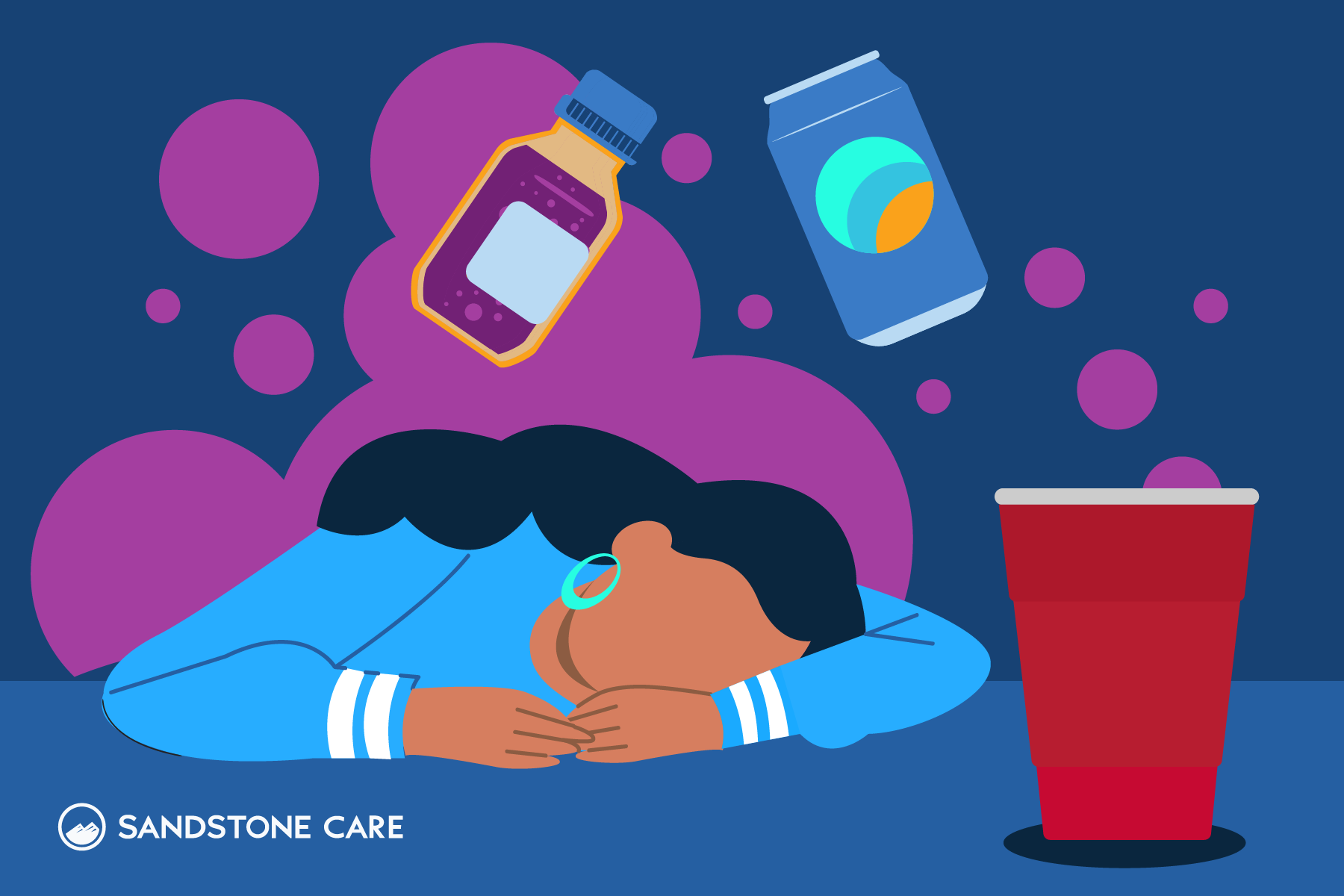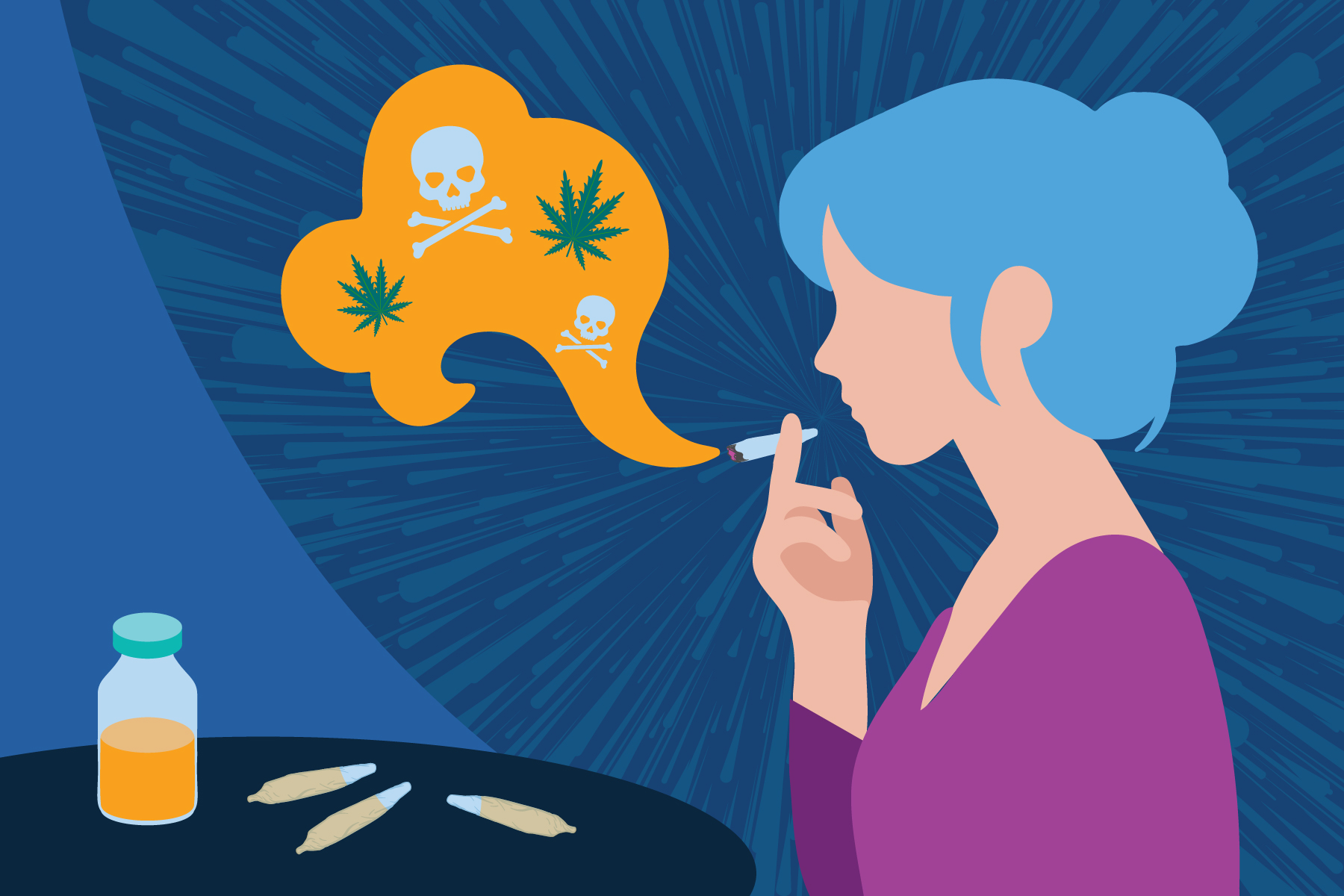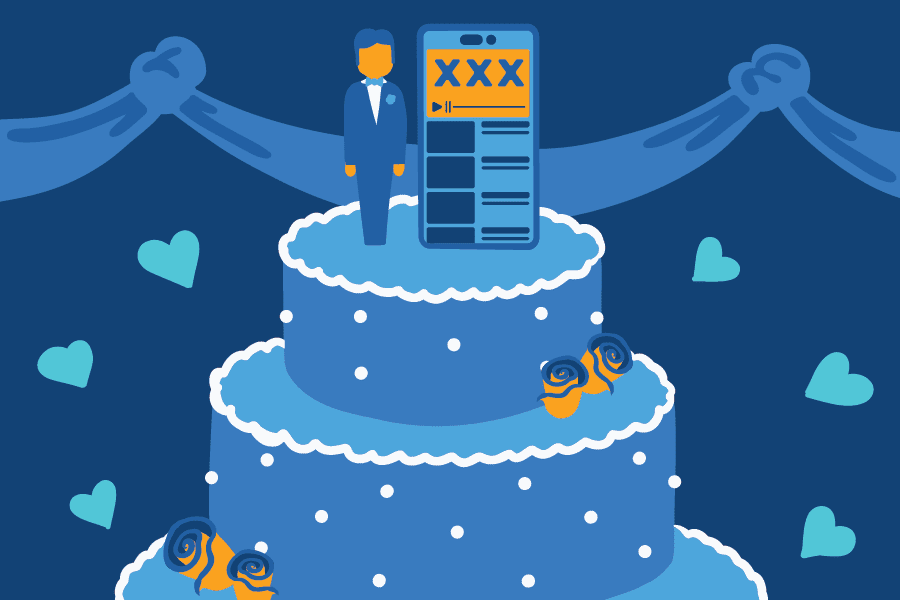How Does Social Media Affect The Teenage Brain?
Social media can have both positive and negative effects on the teenage brain.
Young people, especially teens, are using social media platforms in both healthy and unhealthy ways. Your teen might use apps to connect with others or get advice for real-life issues. However, too much screen time can negatively impact brain development.
During pandemic lockdowns and school closures, young people relied on social media to socialize and learn.
While social media has both positive and negative effects on teens, they need to learn healthy ways to use digital media. The teenage brain undergoes many changes, and some apps can have addictive qualities that negatively impact teens.
Additionally, some content might be disturbing for teens to view. Violence, racism, pornography, and other content can traumatize teens. Teens can develop mental health issues if they cannot process this content.
According to the National Institute of Mental Health (NIMH), “Because the teen brain is still developing, teens may respond to stress differently than adults, which could lead to stress-related mental disorders such as anxiety and depression.”
Stress from disturbing online imagery, cyberbullying, peer pressure or social comparisons can be difficult for your teen to manage. Your teen can use social media for the good things while learning skills to shield them from the adverse effects.
How Does Social Media Cause Low Self-Esteem In Adolescents?
Social media can cause low self-esteem in adolescents for many reasons.
Many everyday people, celebrities, and “influencers” on social media apps do not display a realistic view of their lives. Most people only post the best parts of their lives, like vacations, smiling selfies, or expensive possessions.
Young people might compare their own lives to what they see online. However, adolescents might not understand the full spectrum of life, including the ups and downs. They might not put social media into context as a window to only one part of a person’s life.
Social comparisons can be challenging for young adults and adolescents to understand.
Young people don’t have the experience to realize that life has ups, downs, and even “bland” middles. Most of everyday life might not be as exciting as people portray online. Teens might not understand a person’s online presence versus real life.
Teens might see their friends or celebrities posting vacation pictures, selfies, or sharing only good news. They might compare their lives to these posts without realizing that these posts are highlights and not realistic.
You can help your kids identify the good things in their own lives and talk with them about life “behind the scenes” on social media.
Remind your teens that people use filters on selfies or are only posting the best parts of their lives for social media “likes.” You can also monitor their social media use to see what kinds of messages your teen might be getting from these sites.
Do Social Media Apps Cause Body Image Issues In Teenage Girls?

Teenage girls can develop body image issues due to the unrealistic depictions of beauty on social media apps.
Many apps, like TikTok, Instagram, and Snapchat, have filters that can alter your teen’s appearance. They might compare themselves to the filtered image when posting selfies. These filters create unrealistic expectations of beauty.
In addition, celebrities and social media influencers might use these filters or post-professional photos of themselves as if they look like this in real life.
Teenage girls are especially vulnerable to body image issues due to these false comparisons and unrealistic expectations. Your daughter might spend time trying to perfect a selfie to get more “likes” on their apps.
Body image issues can lead to low self-esteem, depression, and eating disorders.
If you notice changes in your teenager’s attitude, mood, or behavior related to body image, they might be spending too much time scrolling social media and making comparisons.
Teach your daughter about valuing themselves for who they are and not what they look like. Tell them what you love about their personalities, talents, interests, and skills.
If you compliment your daughter’s appearance, focus on choices rather than looks, such as:
- “I like how you did your hair today!”
- “This color looks great on you!”
- “You have such a great sense of style!”
You can also teach your daughter the difference between real life and social media. Remind them that celebrities often have professionals helping them with posts, even if the post appears “casual.”
What Are The Positive And Negative Effects Of Social Media Platforms?

Social media platforms can have both positive and negative effects on your teenager.
Many social media platforms are built around helping people connect with others. Teens used social media for a majority of their social interactions during pandemic lockdowns and social distancing.
Some of the positive effects of social media include:
- Staying in touch with friends and family when face to face interactions are not possible
- Safety updates can be shared on school social media sites during emergencies
- Many groups share events on social media, like clubs, sports, music, and other organizations
- Teens can connect with other like-minded people through shared hobbies and interests
- LGBTQ+ teens and other marginalized groups can connect online and find self-help resources
- Kids can share healthy coping skills and learn positive behaviors from others
- Online substance abuse and mental health treatment can help kids who struggle find support
Most of the negative effects of social media occur when kids do not put things into context. They might neglect dangers when posting information online or spend too much time scrolling on their phones.
Negative effects of social media include:
- Social comparisons can impact your teen’s self-esteem
- Social media can “hijack” your teen’s brain by providing boosts of feel-good chemicals when they get “likes”
- Teens might use social media excessively to escape or cope with underlying mental health issues
- Too much time online can distract your teen from developing real-life relationships
- Social media platforms can leave your child vulnerable to cyberbullying, disturbing content, or sexual predators
You can help your teen spend less time online and more time engaged in real life. Learn more about why they use social media and remind them that social media enhances real life but is not a substitute.
What Is Cyberbullying?

Cyberbullying is a form of bullying that occurs online, by texting, or through social media platforms.
According to StopBullying.gov, “Cyberbullying includes sending, posting, or sharing negative, harmful, false, or mean content about someone else. It can include sharing personal or private information about someone else causing embarrassment or humiliation.”
Cyberbullying can damage your teen’s self-esteem. Teens might also not think about comments they make on social media that might hurt others. Meanspirited online comments can be just as hurtful as in real life.https://www.stopbullying.gov/cyberbullying/what-is-it
Sometimes, cyberbullying can cross the line into criminal behaviors, like threats or stalking.
If your child appears to lack confidence or has low self-esteem, they could be a victim of bullying. Whether online or in-person, bullying can affect your child’s mental health and, in extreme cases, can lead to suicide.
You can protect your child from cyberbullying with the following tips:
- Talk to your kids openly about their social media use
- Check the social media platforms your child uses and make sure they have the most restrictive privacy settings enabled
- Make sure that your child is not sharing any personal or identifying information on public platforms, like their address or full name
- Teach your child to think about what they post or send to others
- Remind your child to talk to you or another trusted adult about any bullying behavior they experience online
If you notice any changes in your child’s moods or depressive symptoms, let your child know that you see a difference. Kids might not feel comfortable talking to their parents about their mental health and self-esteem. It is best to be straightforward about what you’ve noticed.
Should I Give My Teenager A Cell Phone?

Many parents wonder if they should give their teenagers a cell phone.
Most kids will want a cell phone to feel like they fit in with their peers. Cell phones can be helpful to keep kids connected to parents or have access to help when something is going wrong.
There is no right or wrong age to give your child a cell phone.
Whether or not you choose to give your teenager a cell phone is up to you. You might use a cell phone as a way to teach your teen responsible behavior. For example, you can give your teen conditions for cell phone use and have consequences when they break these rules.
If you give your teen a cell phone, keep the following tips in mind to help them learn to use their phone in a healthy way:
- Check the cell phone bill to get a sense of your teen’s cell use
- Set rules at home, like no phones at dinner or when doing homework
- Use parental controls to protect your child from inappropriate content, cyberbullying, or other online dangers
- Install a safe-driving app to prevent your child from using their cell phone while driving
- Regularly check their phones to monitor their use and social media apps
Cell phones can help your teen stay safe when they are in trouble or connect with others. However, some online activities can be dangerous or unhealthy for your kids. Be sure to teach them healthy and safe cell phone use.
How Can I Keep My Teen Safe Online?

You can help your teen stay safe in their online activities.
While social networking sites can have some positive aspects, they can leave your teen vulnerable to danger. Your teen can learn to use apps safely without giving away too much personal information.
Some dangers of social media include:
- Sexual predators posing as other teens or pressuring teens to meet them in real life
- Peer pressure to complete dangerous social media challenges, like the “Tide Pod” challenge
- Viewing disturbing or distressing content, like pornography, violence, racism, or angry rants
- Being stalked by adults or other kids when teens share too much personal or identifying information online
- Cyberbullying, where strangers or classmates insult or make lewd comments on your child’s social media posts
Teens can be vulnerable to dangers online. Since social media is often used for clubs, events, and other real-life activities, your teen cannot entirely avoid being online.
According to the Department of Homeland Security (DHS), “Children who spend time on social networks are at risk of becoming victims of online predators, cyberbullying, or exposure to inappropriate content.”

The DHS provides the following tips for online safety:
- Tell your kids not to give out personal information to people they meet online.
- Your kids should also not plan face-to-face meet-ups with people they met online.
- Review your child’s social media accounts to ensure that they are not sharing personal or identifying information.
- In addition, review the accounts that your child follows, including your child’s friends, to see what type of posts or links your child might be exposed to from others.
- Remind kids that what they post could be online forever or “screen-shot” by others before removing posts they later regret.
- Ensure that your child uses the most restrictive privacy settings possible on any of their social media accounts.
- Let your kids know to tell you or another trusted adult when they feel unsafe, threatened, or uncomfortable due to something they experience online.
In addition, you can monitor what your child posts online to help them stay safe.
Kids might post things out of anger, angst, sadness, jealousy, or other emotions without thinking of consequences.
By teaching your kids safety tips and monitoring their online activities, you can help them stay safe online. Be open with your kids about their social media usage to keep them safe from strangers or seeing inappropriate content.
Teaching your kids online safety is one step in building a healthy relationship with cell phones and digital media. Your kids can also learn to set boundaries between their time online and real-life activities.
How Can I Teach My Teen To Use Social Media In A Healthy Way

You can teach your teen to use social media in a healthy way.
Young people will need healthy habits to use the internet and social media. Using cell phones and other devices will be a part of your teen’s future in their career or academic pursuits. Even if your teen is addicted to social media, they cannot avoid it entirely.
If you are concerned about your teen’s online activities and would like to help them spend less time on social media, try some of the following:
- Talk to your kids about their social media use.
- You can ask them questions about the apps that they use.
- Ask which apps they like, what videos they watch, which celebrities or influencers they follow, etc.
- Ask them why they like certain apps or what they like about social media accounts they follow.
- Set rules at home regarding cell phones and the internet for all family members.
- You can have rules like “no cell phones during dinner” or collect your kid’s devices at bedtime.
- Since many teens are using devices for school and homework, ask them to do their work in a shared space in the home.
- If your teen needs privacy to work on a project, check in on them periodically to ensure that they get work done without getting distracted.
- Turn your wifi off at night or other times you deem necessary.
- Set an example for your teen to follow.
- You should follow the same rules that you set for your kids.
- If you need your device available for work, explain to your family why and try as best as you can to set healthy work/life boundaries.
- Schedule family time for fun activities to do together.
- You can have a family board game night, movie night, plan an outing, or go out for a hike.
- Dedicate this time to the family and turn all devices off, on silent, or collect them to teach your kids how to set boundaries with social media.
- Teach your kids the differences between reality and social media posts.
- Teens might not understand the difference between peers or celebrities posting the highlights of their lives without showing the negatives.
- Social media can show people living extraordinary lives without showing any of the downsides.
- Remind your teens that people generally only post the highlights of their lives, which do not reflect their everyday lives.
- Influencers and celebrities also can spend hours in a photoshoot or using filters to enhance their appearances.
- Learn to embrace the positive aspects of social media sites and apps.
- You might not understand teen social media use or see the value in it.
- Let your kids teach you about it and show you the positive sides of social media.
- For teens, social media and real life are blended, yet they can have healthy boundaries between the two.
The best thing you can do is teach your teen not to let social media distract them too much from real life. Social media apps can enhance real-life activities, but they should not replace them.
Teens and young people can become addicted to social media when their mental health and well-being suffer from too much time online.
Unlike drug or alcohol addiction, your child cannot “quit” social media. Too much of modern life depends on the internet. By teaching your teen to set boundaries with cell phones and digital media, you can help them develop a healthy relationship with their devices.
Social media can have a negative effect on your teen’s mental health. You can teach your child healthy ways to use digital media and cell phones. Sandstone Care is here to support teens with mental health and substance use disorders. Call (888) 850-1890







